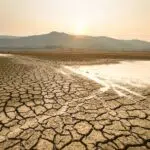World Day to Combat Desertification and Drought is recognized yearly on June 17. It focuses on reclaiming degraded land and transforming it into a healthy environment. Droughts are one of the most serious risks to long-term development, particularly in developing countries, but also in affluent countries. The major goal of the day is to develop workable answers to the problem of desertification. It is critical to the rehabilitation of degraded land to increase economic resilience, increase income, and assure food security. The day gives us a good opportunity to recognize that drought and desertification can be eradicated.
History of World Day to Combat Desertification and Drought
The United Nations General Assembly designated the World Day to Combat Desertification and Drought in 1994. This day was created to raise public awareness about measures to battle desertification, particularly in areas where there is a severe drought. For the first time in 1995, people all across the world observed World Day to Combat Desertification and Drought.
Every year, the World Day to Combat Desertification and Drought is held to raise public awareness of global efforts to combat desertification. Droughts are one of the most serious risks to long-term development, particularly in developing countries, but also in affluent countries.
According to the World Meteorological Organization (W.M.O.), droughts have grown by 29% since 2000 compared to the previous two decades.
Drought is a major issue now that more than 2.3 billion people currently struggle with water scarcity. By 2040, most children would be living in places with acute water shortages, according to estimates made by UNICEF. Drought affects every country across the globe.
As a result, the United Nations Convention to Combat Desertification (U.N.C.C.D.) is urging all members of the international community to recognize land as a finite and valuable natural resource, prioritize its health, and work hard to preserve it. Everyone has a stake in the future, thus everyone has a role to play.
This observance aims to inspire action and make discussions concerning drought and desertification more mainstream. By addressing these issues constantly, we can come up with lasting solutions to sustain our planet for future generations.
World Day to Combat Desertification and Drought timeline
Desertification is acknowledged as one of the most significant threats to sustainable development at the Rio Earth Summit.
On January 30, the United Nations General Assembly recognizes this holiday.
The Amazon basin endures its worst drought in 100 years.
The U.N. and its partners provide support for over 70 drought-prone nations in developing plans to mitigate drought disasters.
World Day to Combat Desertification and Drought FAQs
What is the global impact of desertification?
Desertification has a significant impact on health. It raises the danger of starvation, poverty, water scarcity, climate change, biodiversity loss, and overall environmental imbalance.
How much land is destroyed by land degradation yearly?
Land degradation destroys 75 billion tons of fertile soil each year.
What factors contribute to desertification?
Over-cropping, unsustainable Irrigation practices, climate change, irrigation practices, overgrazing, deforestation, poor land management, and high human density are the chief causes of desertification.
How to Observe World Day to Combat Desertification and Drought
Attend a gathering
You can mark drought and desertification awareness day by organizing an event that highlights the topic. If you don't like arranging events, why not attend one of the U.N. events?
Be environmentally conscious
This day is also an opportunity to make eco-friendly decisions that can help preserve the future from drought. Purchasing goods from environmentally conscious businesses is a proven approach to contributing to the Earth’s conservation.
Plant a few trees
Trees help combat desertification as they prevent soil erosion. You could plant some trees to celebrate, and just one or two in your backyard would suffice!
5 Important Facts About Drought
Target location
Spain is one of the European countries that is most vulnerable to climate-related drought and water scarcity.
It can destroy the food chain
Drought can disrupt the food chain and result in famine due to shortages of water for crop irrigation.
It has a lengthy duration
Drought can last anywhere from a week to a month, a year, or even longer.
Drought can be mitigated by planting trees
Tree roots and fallen leaves help the ground absorb and retain water.
Drought can be caused by overpopulation
Overpopulation in drylands can have an impact on the soil.
Why World Day to Combat Desertification and Drought is Important
It raises public awareness
This observance informs people that desertification and drought can be effectively addressed. It’s a reminder that solutions are attainable, and that vital instruments for accomplishing this goal lie in increased community engagement and cooperation at all levels.
It encourages collaboration
People and governments must unite and take action to avoid the dangers of this natural disaster. International cooperation is critical in attempting to mitigate future drought and desertification.
it supports the vulnerable
The World Day to Combat Desertification and Drought calls on countries to work with the U.N. to assist the most vulnerable people. Most vulnerable groups are unable to help themselves and need all the support we can offer.
World Day to Combat Desertification and Drought dates
| Year | Date | Day |
|---|---|---|
| 2026 | June 17 | Wednesday |
| 2027 | June 17 | Thursday |
| 2028 | June 17 | Saturday |
| 2029 | June 17 | Sunday |
| 2030 | June 17 | Monday |





















